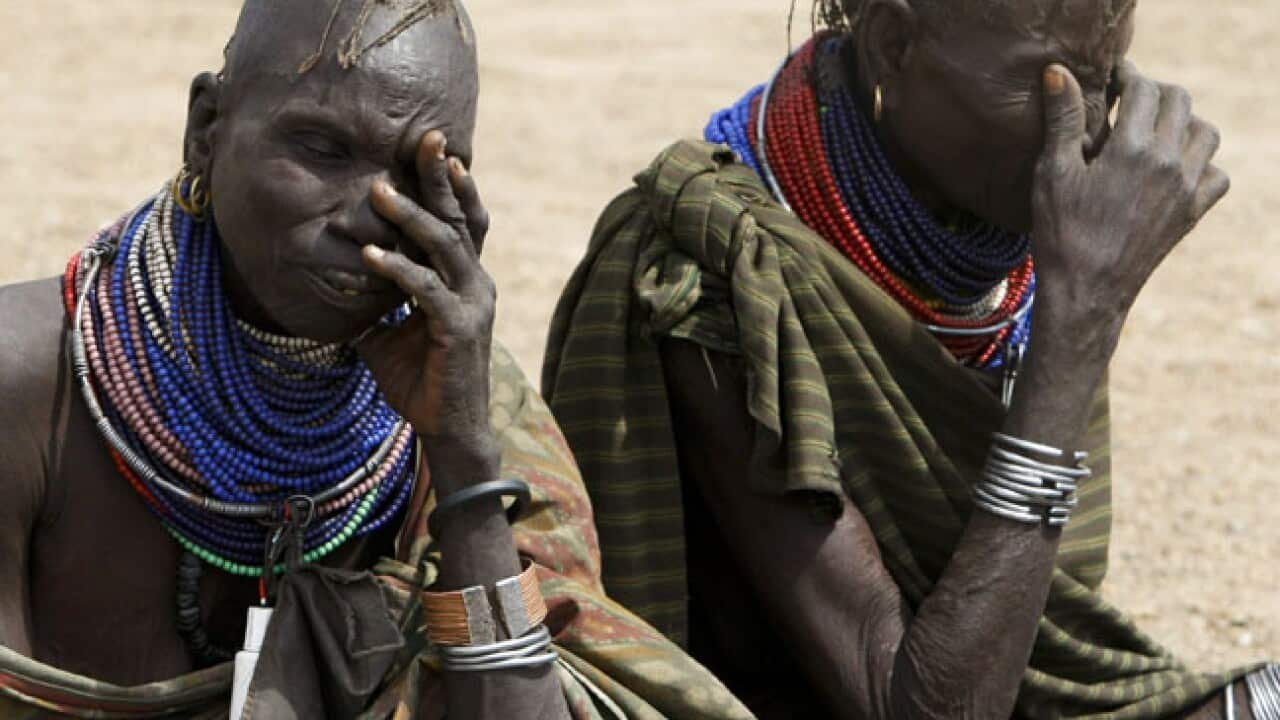Secretary of State Hillary Clinton on Thursday announced $US17 million ($A16.74 million) in new US aid to famine and drought-hit East Africa, what she called the world's "most severe humanitarian emergency."
In a speech about the food crisis and efforts to prevent future ones, Clinton said total US humanitarian assistance to the region this year now amounts to $US580 million ($A571.23 million), including $US105 million ($A103.41 million) announced on Monday.
The chief US diplomat said $US12 million ($A11.82 million) of the $US17 million ($A16.74 million) in new aid would go to Somalia, the worst hit in a drought that has also ravaged parts of Kenya, Uganda, Ethiopia and Djibouti.
Some 12 million people are in danger of starvation, UN officials say.
"What is happening in the Horn of Africa is the most severe humanitarian emergency in the world today and the worst that East Africa has seen in several decades," Clinton told the International Food Policy Institute.
She said much has been done already to fight the famine but a "great deal more" needs to be done and it needs to be done "fast."
The United Nations raised its Horn of Africa humanitarian appeal on July 29 to $US2.48 billion ($A2.44 billion). UN officials say $US1.3 billion ($A1.28 billion) is still needed.
US officials on Tuesday called on other countries to sharply increase aid to famine and drought-hit east Africa, warning that the needs of the starving outstrip the pace of assistance.
US officials made the appeal after returning from a visit to Kenya with Jill Biden, wife of Vice President Joe Biden, which included a tour of refugee camps and meetings with top government figures.
Thousands of Somalis fleeing the famine have poured into Kenya and Ethiopia, compounding the problems faced by those two nations.
Clinton said the United States is reaching reaching more than 4.6 million people with the nearly $US600 million ($A590.93 million) in aid.
"It helps pay for food distribution; for therapeutic feeding for those who are severely malnourished; for clean water, health care, sanitation, protection and other services for those in need," she said.

